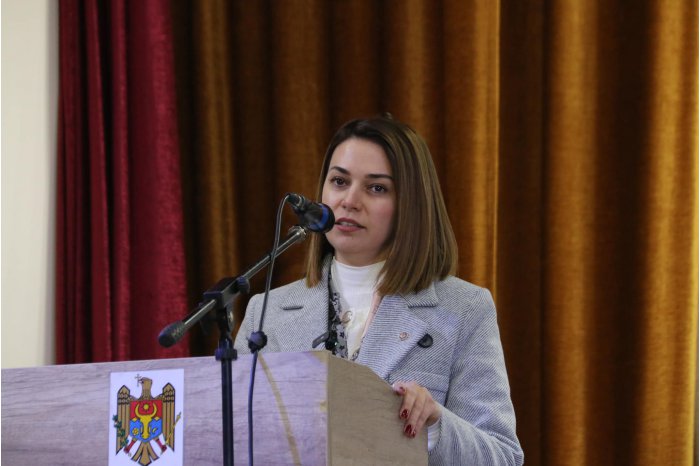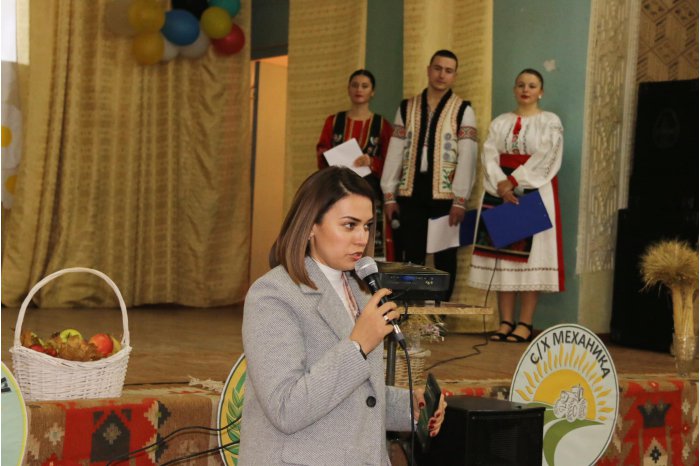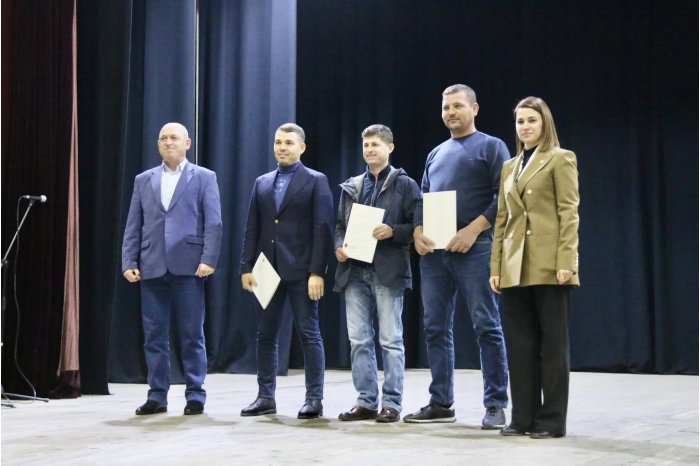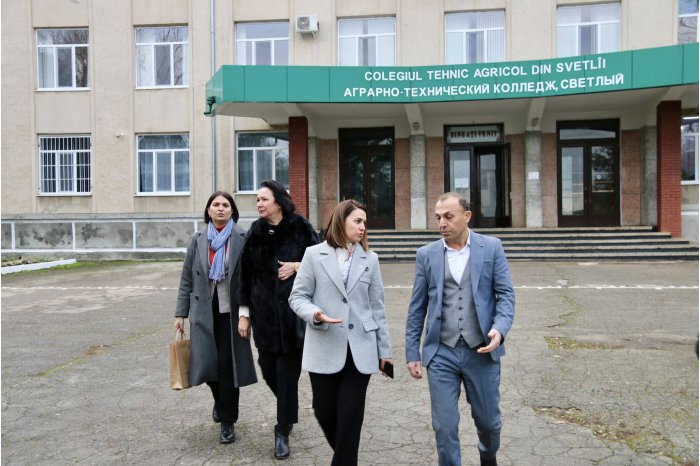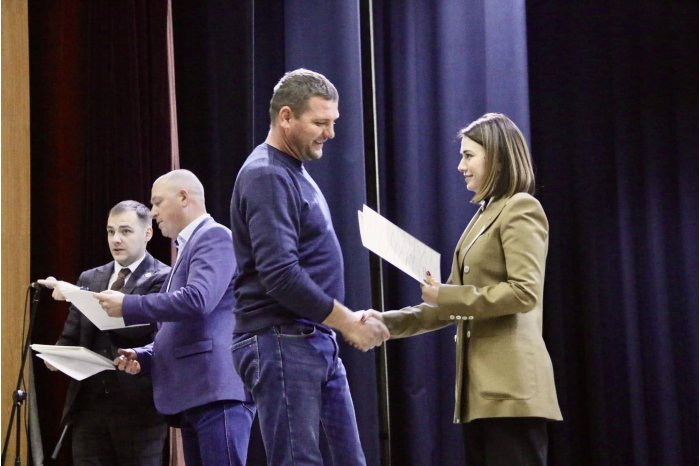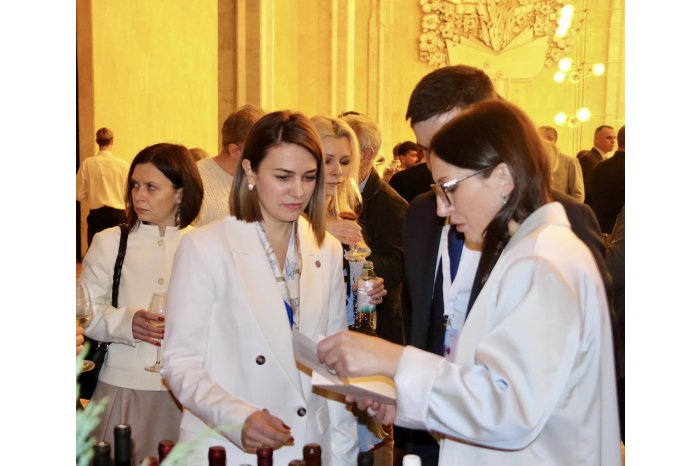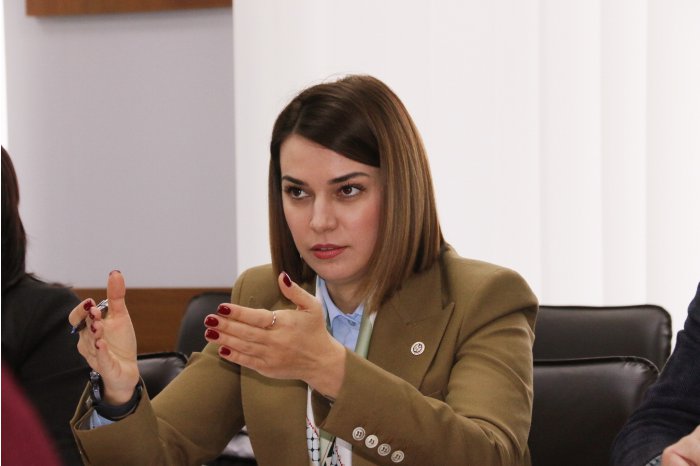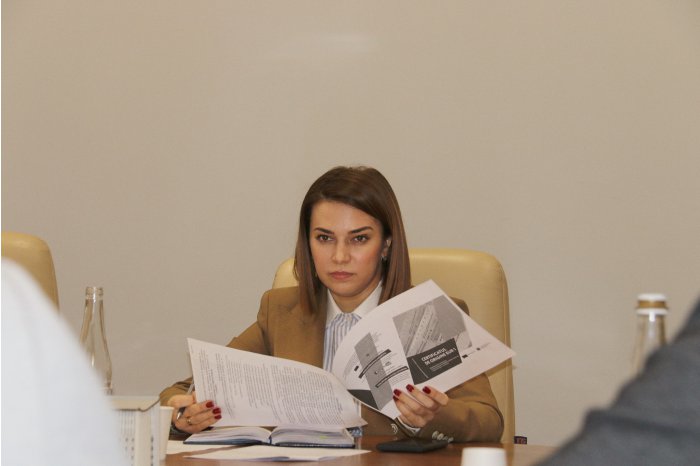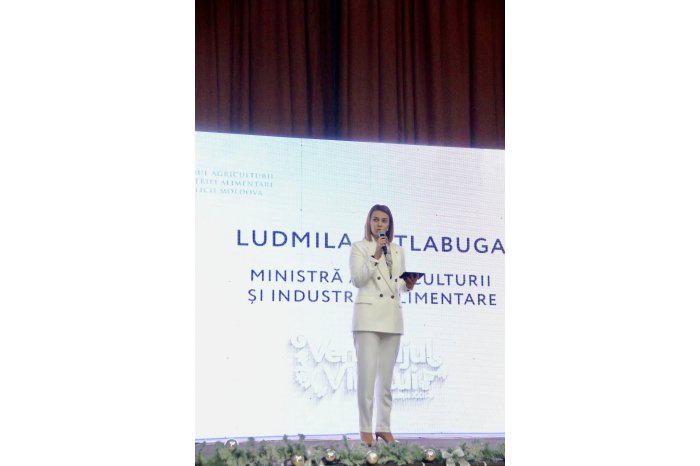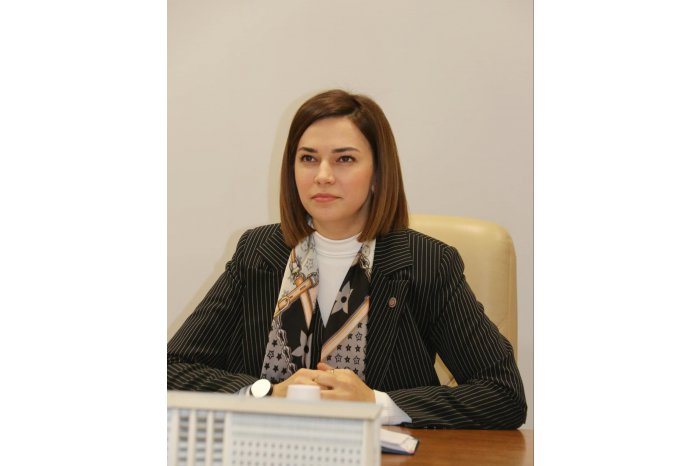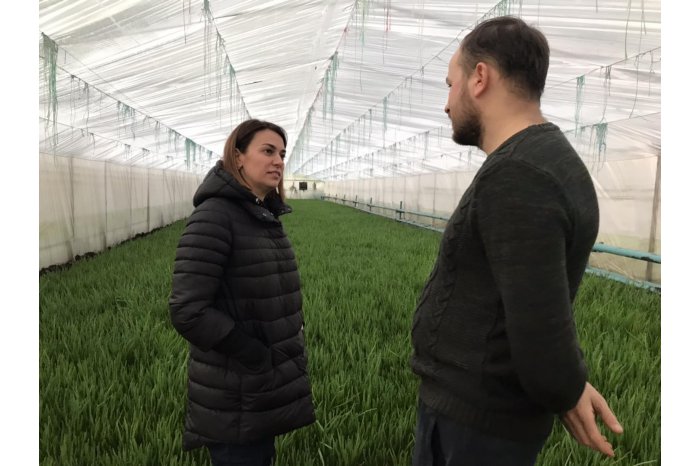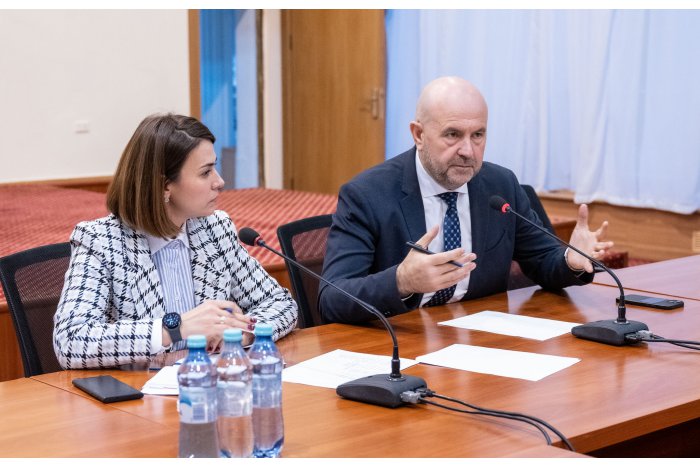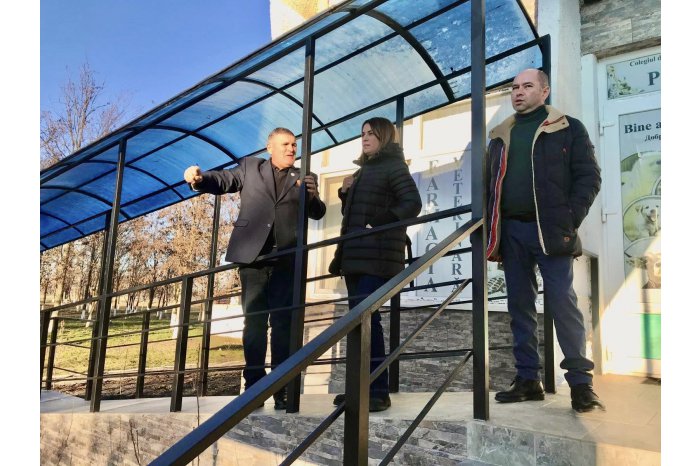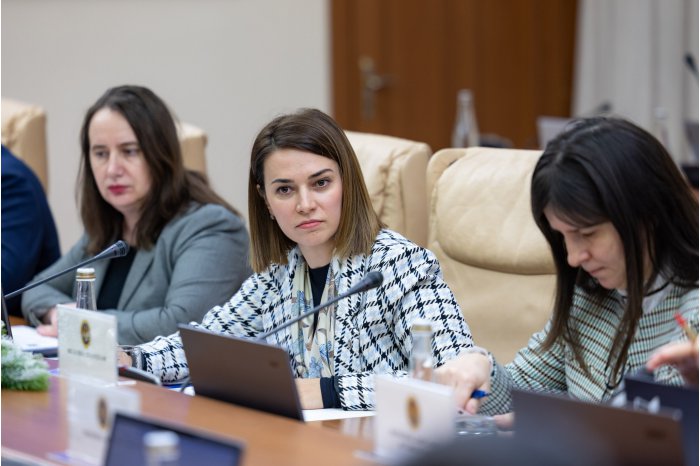MOLDPRES INTERVIEW/ Agriculture and Food Industry Minister says Moldova experiences times with many opportunities
20:16 | 15.12.2024 Category: Interview, Event
Interview given exclusively with the MOLDPRES State News Agency by Agriculture and Food industry Minister Ludmila Catlabuga
MOLDPRES: Mrs. Minister, how is the 2024 year from the viewpoint of the businesses in agriculture?
Ludmila Catlabuga: The 2024 year has been a diverse year for the agro-industrial sector; for some people, it meant the challenge of the drought, for the others it meant value added to harvest. But what we can for sure say is that the Moldovan farmers proved that the sector has resources, has will and has people, in order to become competitive, dynamic and prosperous. From the economic viewpoint, the agriculture has proved capacity to overcome diverse challenges. The efforts of the farmers and authorities led to important achievements and established friendly premises for developing the sector.
In the horticulture, the climate changes put the harvests to test. Nevertheless, the exports of fruits increased significantly, especially due to the extended access to the European Union’s markets. Moldovan apples, grapes and plums reached international markets in bigger quantities. We know that the association and modernization represent the solution. We will continue backing the groups of producers and to encourage the innovation in plantations.
The vine-growing and wine-making sectors were marked by a difficult year, with drought and diminished harvests. Nevertheless, the quality stays the priority of the vine-growers and this makes us happy. And to support them, we know what we have to do: to create conditions for fair contractual relations and to back the registration of the plantations in the Vine-growing and Wine-making Register. We want the vine-growers to regard the native planting material and so that we have more young vine plantations. These actions will bring stability and will open the way to a better organized sector.
In the business in animal husbandry, a continuous development is recorded. The production of milk increased by almost 18 per cent and the AGGRI project gave farmers chance to access grants for modernization and aligning with the highest standards. In 2024, two calls for getting grants took place and the third one is scheduled for 26 December 2024, covering all species of animals eligible: cattle, sheep and goats. Due to sectoral policies and state’s interventions through subsidies and direct payments, the production of milk in the authorized farms reached 50,000 tons in 2024, as compared to 42,200 tons in 2023 and 36,900 tons in 2022. Also, the recognition of the first exploitation of amelioration of pigs for reproduction is a positive signal for the development of this sector.
In the vegetable growing sector, the creation of the first two associations marks a turning point for this sector. This is a sign of maturing and of organization of farmers. The association gives a new dimension to the vegetable growing sector, turning this field from a dispersed activity into a force able to meet the market’s requirements. The association allows farmers to efficiently cooperate, to negotiate better with processors and commercial networks and to consolidate their position in the value chain.
MOLDPRES: What viable forecasts and strategies do you see for 2025?
Ludmila Catlabuga: The agriculture stays a strategic sector, which has an impact not only on the economy and food security, but also on the way the rural Moldova is developing. Nevertheless, in order to grow, this sector must prove flexibility, vision and adaptation to all challenges of the times; either we speak about the crises of logistics, or political and economic crises. For Moldova, at this point, it is badly necessary to develop crops resistant to the climate changes and to reset the vision of exploring the agricultural crops in the southern region. These interventions, backed through investments in the modernization of the irrigation systems and development of the post-harvesting infrastructure, will enhance the productivity and resilience of the sector. At the same time, the consolidation of the institutional framework and the approximation of the national legislation to the European regulations will create the conditions needed for the attraction of additional funds on behalf of international partners. At the institutional level, dynamic steps will be made for the institutionalization of the Agricultural Chambers. They will have the role to support the farmers by counselling, training and implementation of innovating technologies. At the same time, the giving the final touches to the Law on Horticulture and the setting up of the Horticultural Office will contribute to the consolidation of this strategic sector, providing a normative framework and support for the people of the sector. Also, the investments in irrigation projects, carried out in cooperation with the World Bank and the French Development Agency, will give farmers access to the necessary water resources to develop their activity. The specific financial measures will play an important role, such as the preferential agricultural loans with fixed interest and extended periods of repayment, as well as subsidies in advance of up to 50 per cent from the complex projects meant for big farmers, including for sorting and packing lines. These initiatives will contribute to the creation of a business environment friendly for the development of agriculture.
MOLDPRES: How do you assess the latest developments in the economic and commercial relations in the agriculture sector?
Ludmila Catlabuga: The measures of commercial liberalization provided by the European Union had a positive impact on the agricultural exports of Moldova, proving the potential of our products in the European market. Although decreases were registered in certain export segments, the diversification of markets and the consolidation of the relations with the European partners provide friendly perspectives for the future development of the farming sector. The exports of tomatoes grew by 1.150 per cent, the ones of grapes – by 79 per cent and the juices of fruits and vegetables increased by 64 per cent. Moldovan products found new sales markets in Slovakia, Sweden, Hungary, the United Kingdom, as well as in emerging countries, such as Jordan and Mongolia. The year was marked also by the beginning of the exports of special products, such as leaves and branches for ornaments. At the same time, the exports of fowl increased by 40.269 per cent, being directed to Iraq at the level of over 99 per cent. At the same time, the export of eggs recorded a 25-per cent increase, which highlights Moldovan producers’ capacity to access diversified markets and provide supply for the international market. The vine-growing and wine-making sectors continued to be an important pillar of the economy, with increases of 18 per cent in volume and 25 per cent in value.
To boost this progress, it is necessary to continue to harmonize the national legislation to the European Union’s one and the work to the quality of our products, in order to win the confidence of foreign partners. Also, it is important that the farmers should be connected to the profile associations, in order to know the markets’ requirements and tendencies.
MOLDPRES: Taking into account your previous experience, how do you access the perspectives of the animal husbandry sector in Moldova?
Ludmila Catlabuga: In 15 years of entrepreneurship, experiencing along with farmers the challenges and achievements of the animal husbandry sector, in fields, stables or at meetings, in ministry’s halls, I affirm with certainty that the animal husbandry stays a strategic sector and its role in the conversion of the vegetal production into products of animal origin is irreplaceable. Figures show us that we are on an ascendant road. In the 2024 year, the AGGRI project was launched, which gives farmers possibility to strengthen their production capacities and to adjust the processes according to the highest standards. During the 2024 year, two calls took place on the reception of applications for getting grants and on 26 December 2024, the third call will be opened, which will comprise all eligible species of animals (cattle, sheep, goats). This process and the interest in it prove the long-term value of this sector.
Due to the sectoral policies and the state’s intervention through subsidies and direct payments, the production of milk in authorized farms in 2024 is estimated to reach the figure of 50,000 tons, as compared to 42.2 thousand tons in 2023 and 36.9 thousand tons in 2022. This sector will witness a more pronounced development with the full adjusting of the EU legislation and its implementation, when all mechanisms of technological, logistic, economic scientific support will work when the state’s institutions will be prepared to serve and verify the economic entities, being endowed with stationary and mobile laboratories for the testing of the quality and inoffensiveness of products, as well as for the strengthening of the health and well-being of the animals. In 2025, I expect to see even better results, a year of progress. The AGGRI project will start yielding fruits; farmers will invest in farms and will modernize the production process.
MOLDPRES: How do you see the growth and development of other sectors, in a similar way as the vine growing and wine-making ones?
Ludmila Catlabuga: The experience of the vine-growing and wine-making sectors has really managed to make it noticed on international markets and to make revolution during only ten years. This shows us that the association of producers and the existence of joint platforms for discussions and coordination are decisive factors for success. The horticultural sector, as well as other branches can develop a similar approach. The fruits’ producers have already understood the value and impact of the cooperation. We notice that the exchange of experience and innovating solutions becomes ever more frequent between the fruit growers. The farmers might do the same in the field of production of milk and meat.
An example of strategic initiative for the horticultural sector is the creation of the Horticultural Office, on which we work now. The Office would be a platform which provides support to the producers of fruits and vegetables. It can work as a bridge between farmers and international markets, ensuring the promotion of Moldovan products at fairs, exhibitions, organization of marketing campaigns and facilitation of quality certificates recognized globally. The Horticultural Office might play an important role in the continuous training of producers, giving them access to trainings, new technologies and consultancy for the implementation of quality standards. All these associations are about the power and its impact together, when we can become vocal, visible, persuasive and resilient to risks.
Just as the National Office of Vine and Wine (ONVV) became a catalyst for the success of the vine-growing and wine-making sectors, a Horticultural Office can become the centre of coordination for everything which means development and promotion of the horticultural sector. Such an institution might collect and analyze data about production and markets, support the creation of national brands for fruits and vegetables and attract foreign partners for investments. So, no matter the sector, it is essential that all farmers actively get involved in the taking of decisions and participate in the elaboration of policies which regards them directly.
MOLDPRES: What sectors are promising for doing business in the native agriculture?
Ludmila Catlabuga: The Moldovan agriculture is full of opportunities. And these opportunities are available for those who want to see them, access them, experiment them. Nothing can happen without effort, without taking risk, without knowledge and without tenacity.
The vine-growing and wine-making stay key sectors. Moldova asserts itself as a regional and global leader in the production of wines. The success of the vine-growing and wine-making sectors depends on the maintaining of the quality, adaptation to changes and turning to good account of the opportunities provided by the international markets. The 2024 year proved an outstanding performance in the vine-growing and wine-making sectors; the exports increased significantly, both in volume and in value. In the first 11 months of this year, the vine-growing and wine-making production was exported to 71 countries. Moreover, even if the trends on the markets of wines vary between downfalls and increases, the tourist bid provides the experience which makes the consumers being attracted to discover the wine. And this entails also the rural development, the animation of villages and the creation of jobs.
The animal husbandry is a field in ascension, with high demand of meat and dairy products. The exports of fowl and eggs from this year proved this potential. Additionally, the animal husbandry becomes an important link in the value chain of other sectors, an internal economic circuit is created, which makes the market sustainable and helps us have products with value added.
The horticulture continues to generate opportunities of development of sustainable businesses and with high value added. The Moldovan fruits and vegetables are recognized for their quality and find their place on shelves from abroad. Moreover, the ecological agriculture represents a real chance to win access to European markets. The ecological agriculture provides farmers with competitive advantages. The ecologically certified products represent a possibility to access niche markets, without being needed a production at industrial scale. Especially in case of Moldova, where we have everything necessary to become regional leader in the ecological production: fertile soils and openness of consumers from abroad to our products.
The procession of the agricultural products is a strategic direction which can add value and diversify our supply. It is essential that we switch from the export of raw materials to processed products (vegetable oils, juices, tinned fruits and vegetables, bread products, etc.), thus contributing to the economic growth and the creation of jobs. Moreover, in this way, we become a voice worth being heart on the business markets, confirming that, beyond the source of raw material, we can become a sustainable business partner and the processing means a long-term strategic vision, means money with value added, opportunities which can explore new and new cooperation areas.
Moldova can and must excel. I believe in the force, perseverance and intelligence of our people. Our success depends, to a great extent, on the work of each one, as well as on the direction which we establish together. In business, agriculture and other sectors, we leave nothing at random; we need courage, as well as vision. Certainly, the great things do not happen overnight; the perseverance, enthusiasm and education will make difference in several years in all sectors, especially in agriculture. My conviction is that we experience times with many opportunities; we must only make connections between to know, to want and to do.
Mrs. Minister, thank you for the interview!
Author: Lilia Grubii

